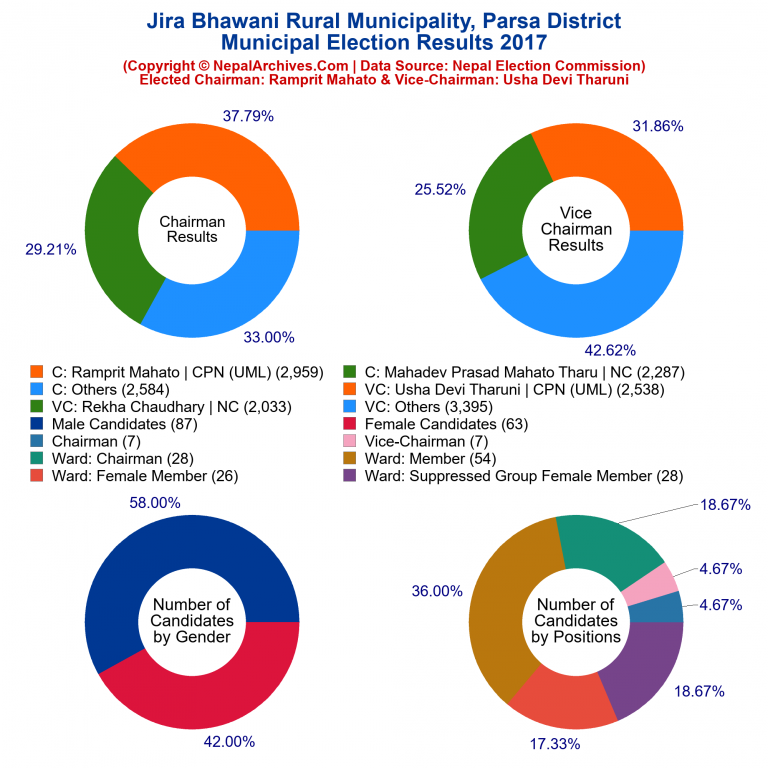In 2017 election of Jira Bhawani Rural Municipality (Parsa district), candidate Ramprit Mahato of Nepal Communist Party (Unified Marxist-Leninist) (CPN (UML)) secured 2,959 (37.79%) votes out of total votes of 7,830 and was elected as a Chairman. The first runner-up candidate was Mahadev Prasad Mahato Tharu of Nepali Congress Party (NC) who secured 2,287 (21.20%) of votes. The rest of 5 candidates for the position of Chairman secured combined 2,584 (16.50) of votes.
Similarly, for the position of Vice-Chairman, candidate Usha Devi Tharuni of Nepal Communist Party (Unified Marxist-Leninist) (CPN (UML)) secured 2,538 (31.86%) and was elected as a Vice-Chairman, while Rekha Chaudhary of Nepali Congress Party (NC) secured 2,033 (19.35%) of votes and came in second position. Other 5 candidates who contested for Vice-Chairman secured combined 3,395 (21.31) of votes.

As illustrated in the pie chart, there were total 150 candidates contested in various positions with gender ratio of 87 (58.00%) males and 63 (42.00%) females. Moreover, there were total 28 candidates contested for ward chairman positions in 5 wards. Same as, total 54 candidates had contested for ward member positions while 26 females and 28 females from depressed group (dalit) had contested for female member position in each ward.
Similarly, for the position of Vice-Chairman, candidate Usha Devi Tharuni of Nepal Communist Party (Unified Marxist-Leninist) (CPN (UML)) secured 2,538 (31.86%) and was elected as a Vice-Chairman, while Rekha Chaudhary of Nepali Congress Party (NC) secured 2,033 (19.35%) of votes and came in second position. Other 5 candidates who contested for Vice-Chairman secured combined 3,395 (21.31) of votes.

As illustrated in the pie chart, there were total 150 candidates contested in various positions with gender ratio of 87 (58.00%) males and 63 (42.00%) females. Moreover, there were total 28 candidates contested for ward chairman positions in 5 wards. Same as, total 54 candidates had contested for ward member positions while 26 females and 28 females from depressed group (dalit) had contested for female member position in each ward.
